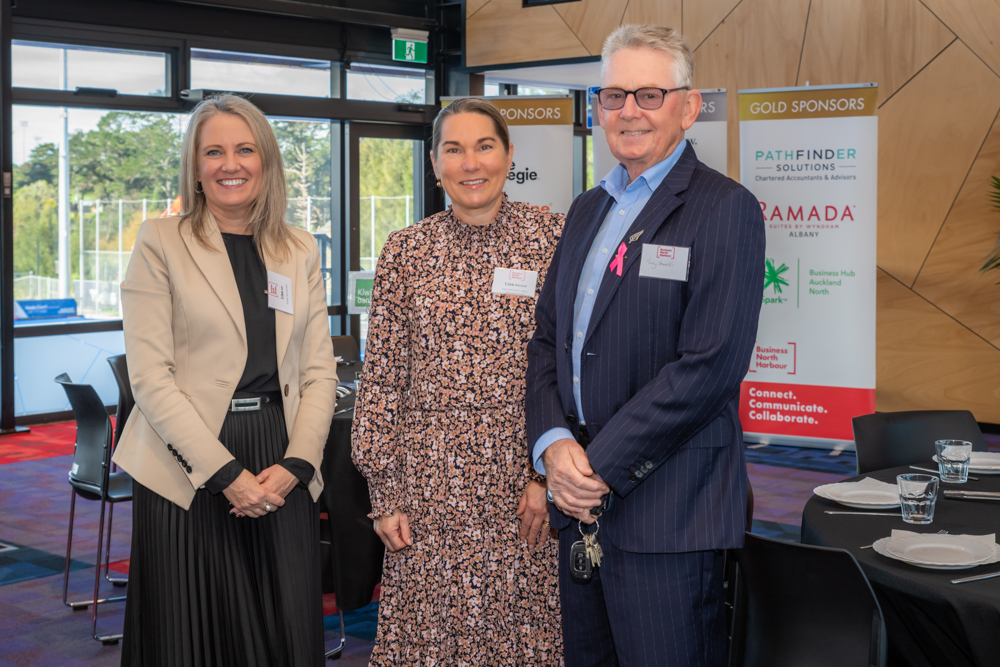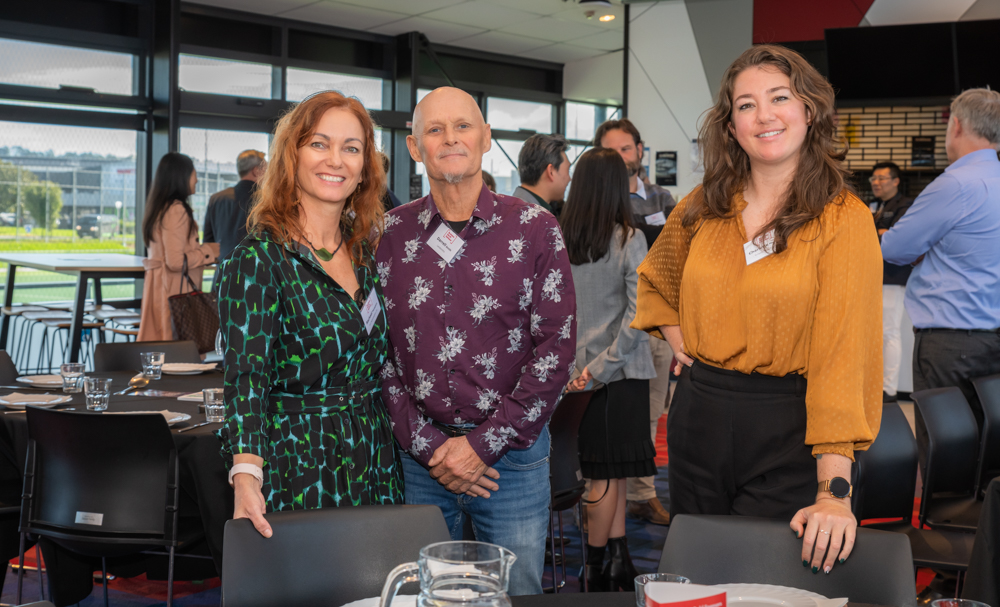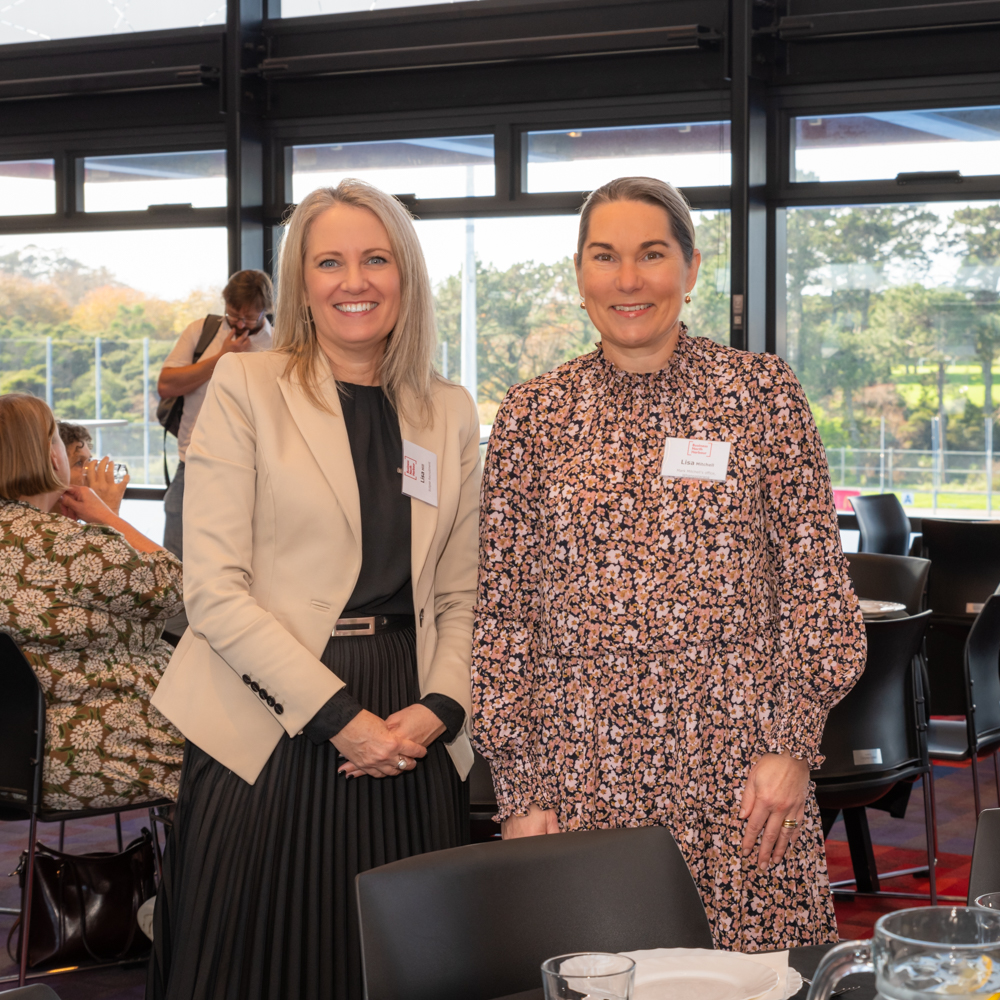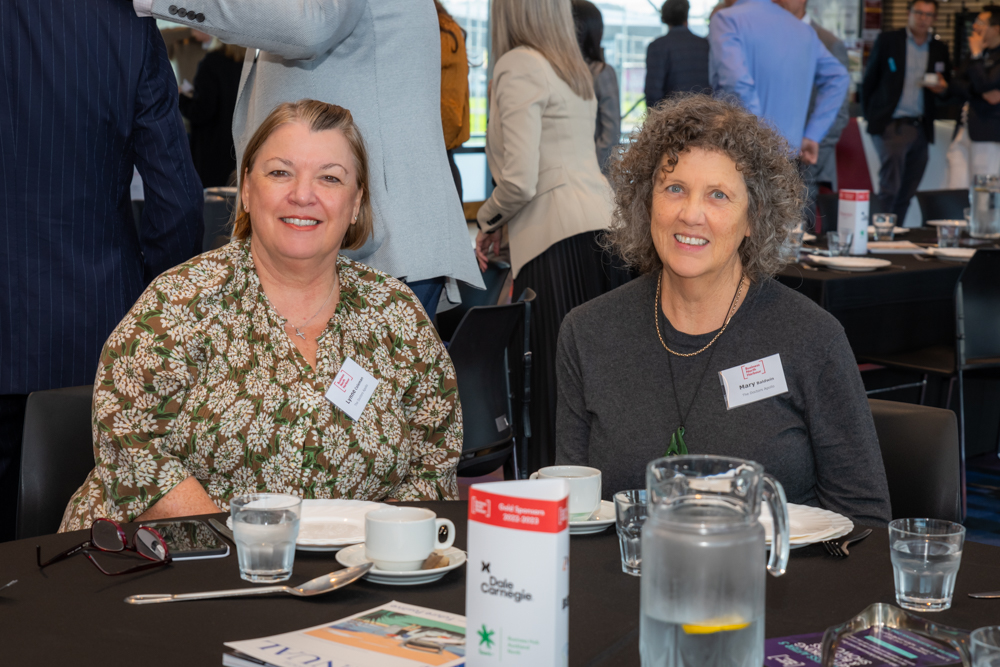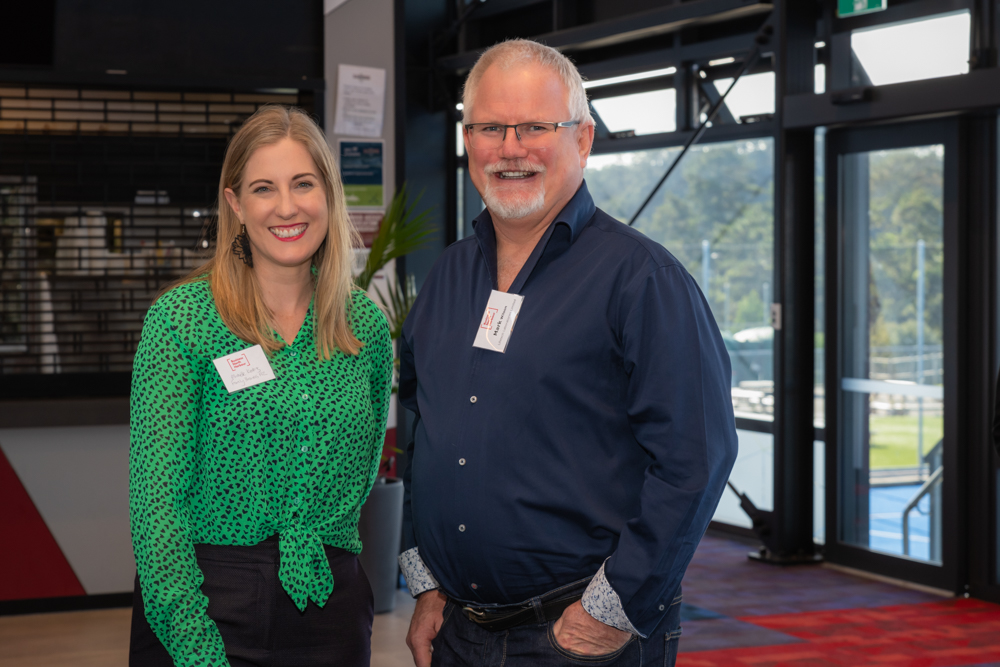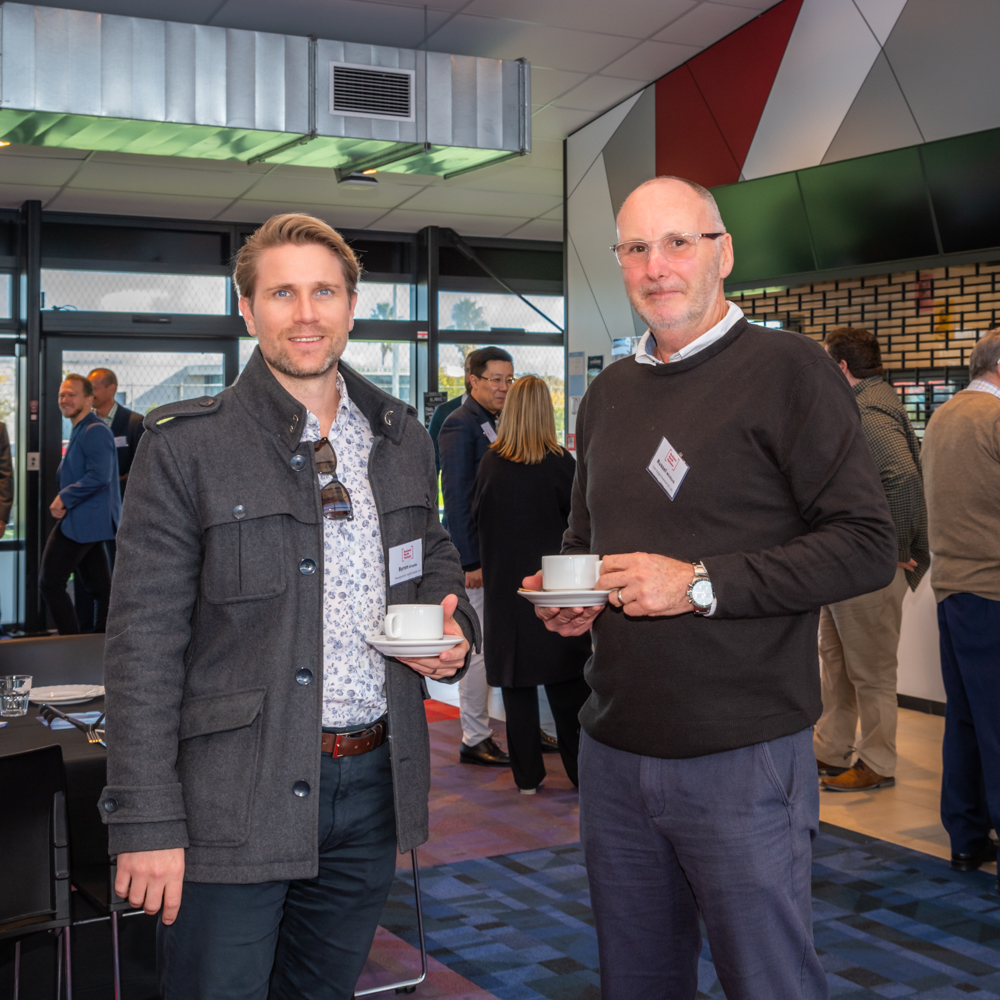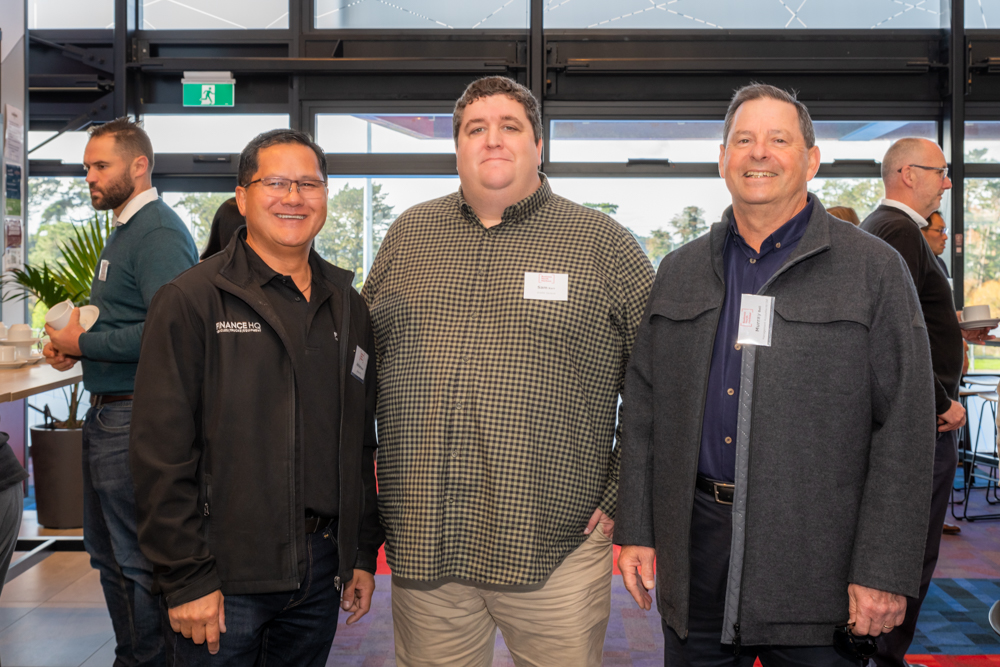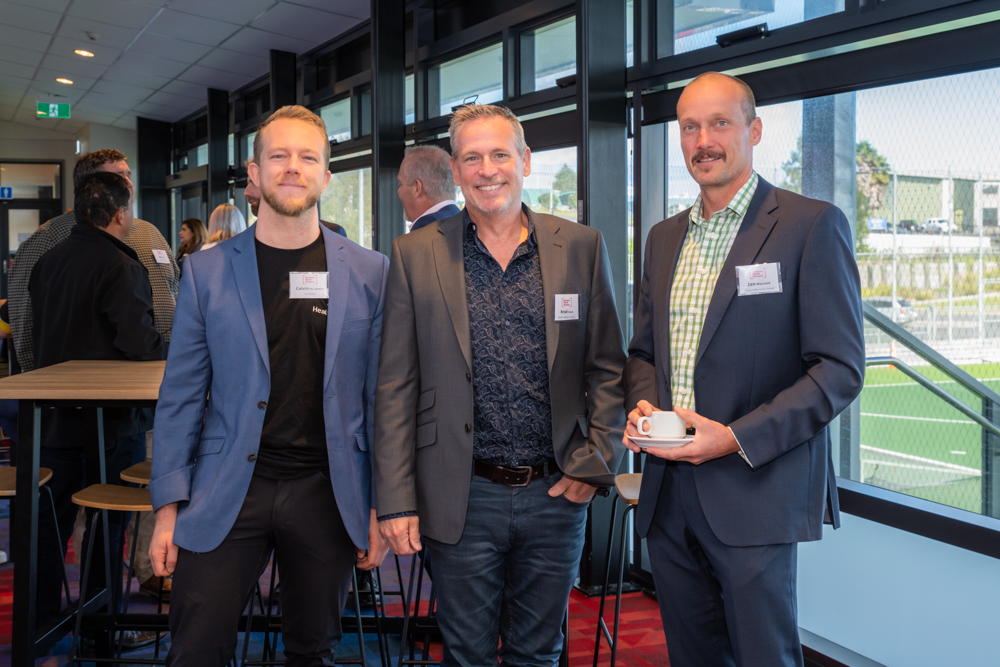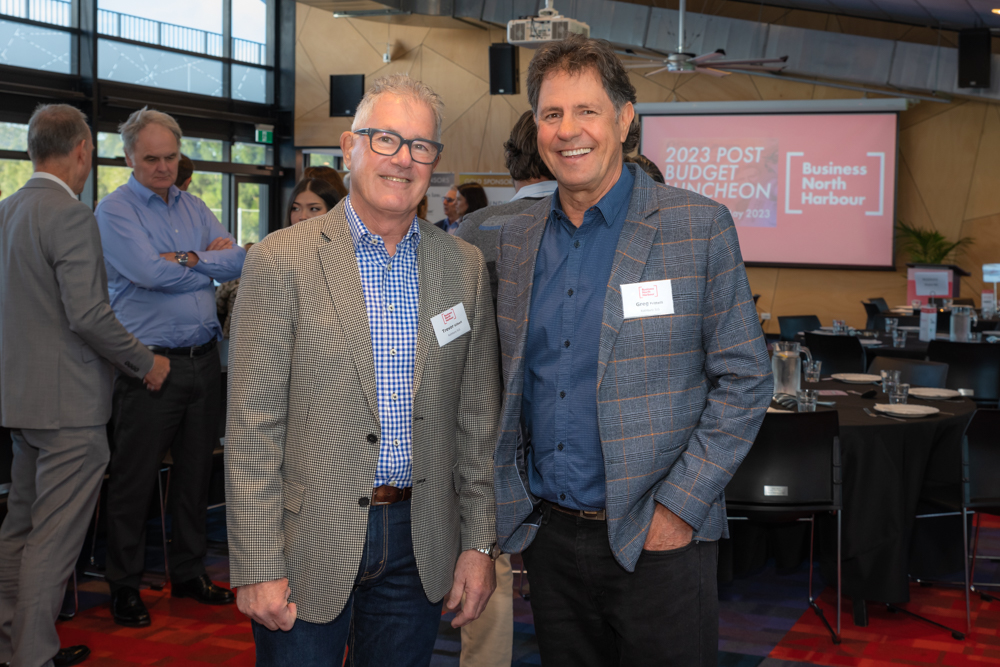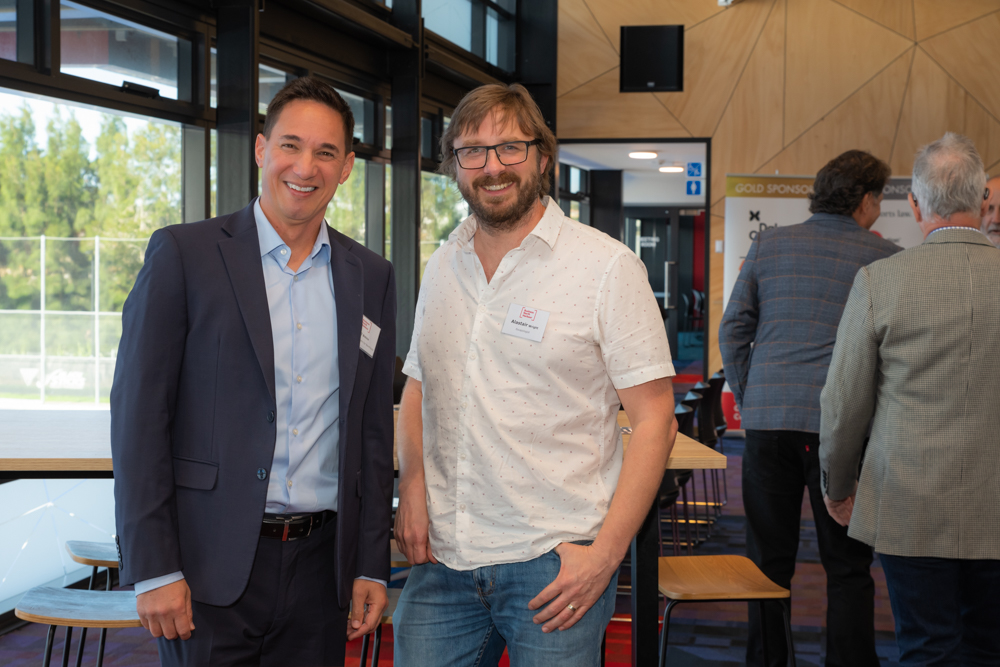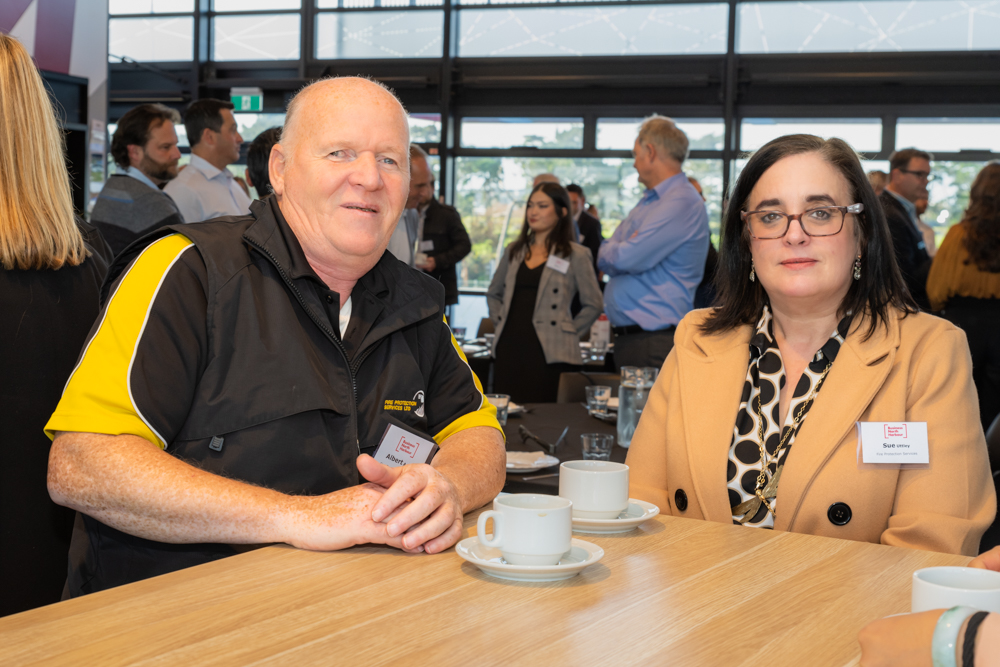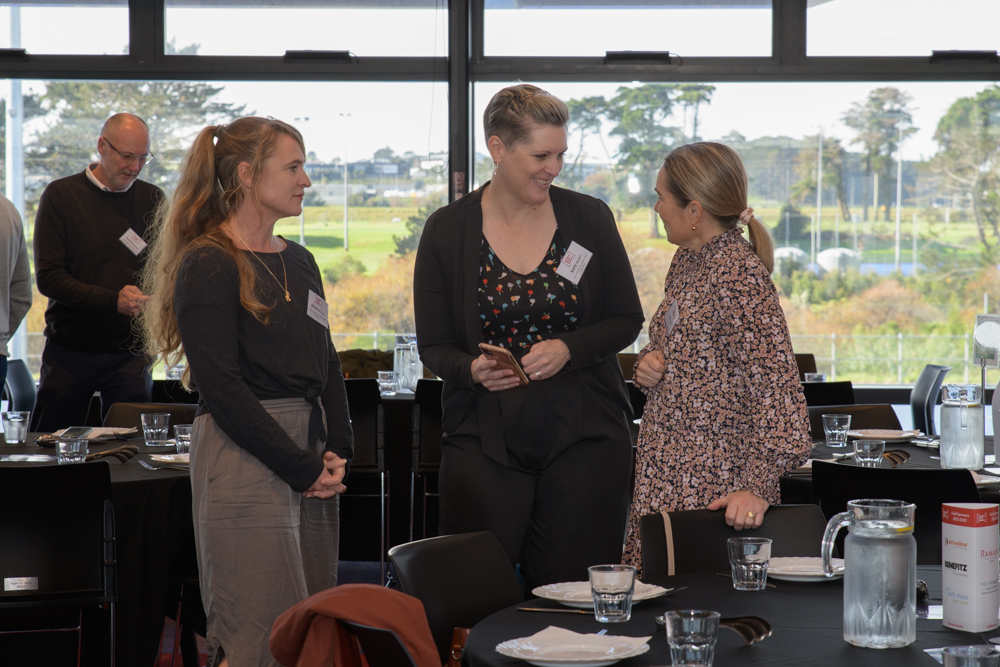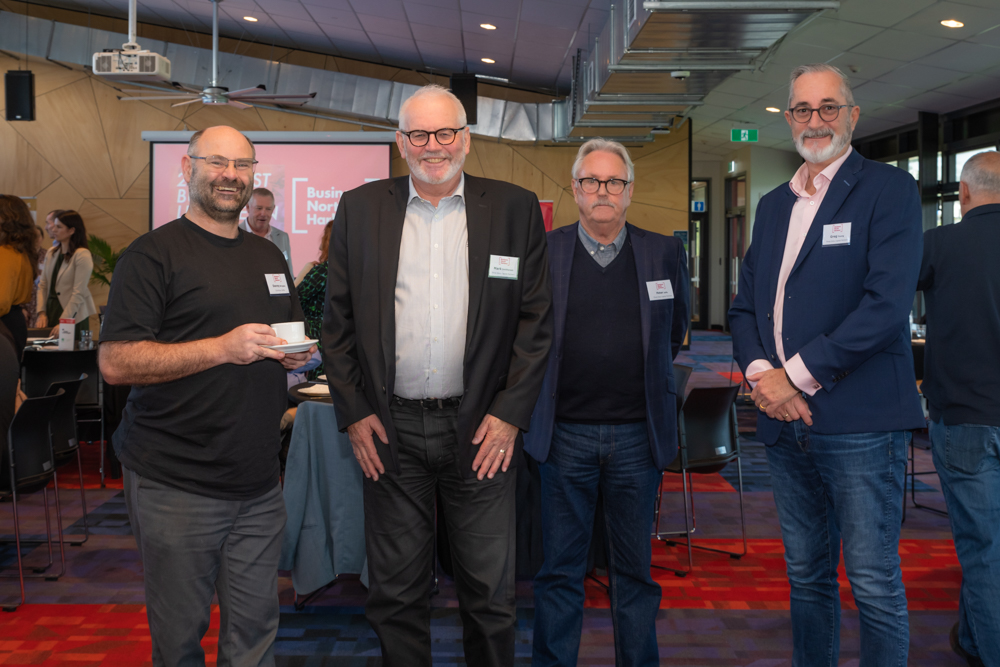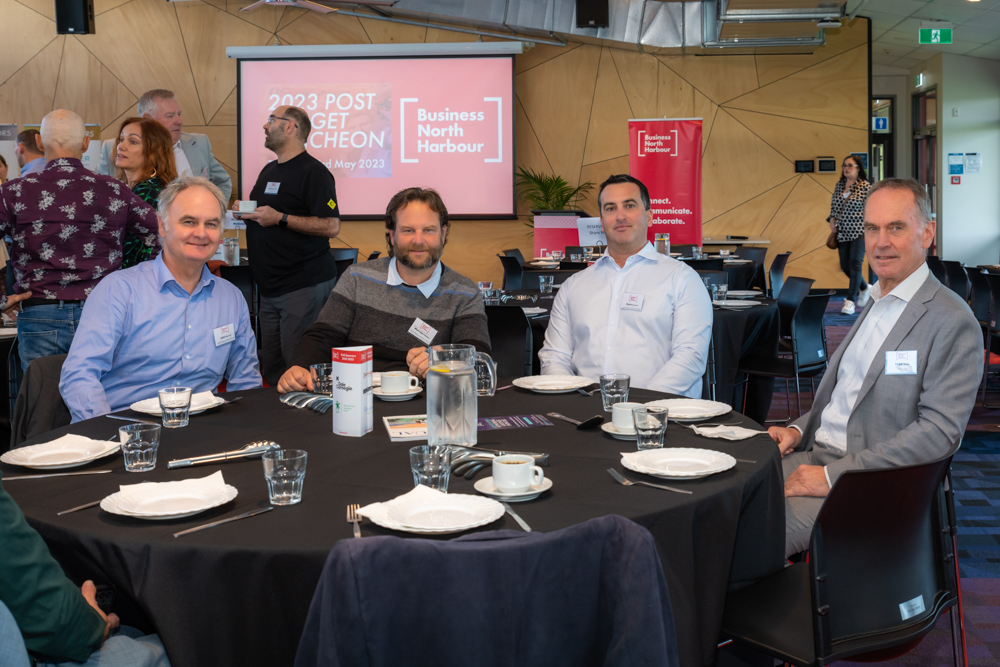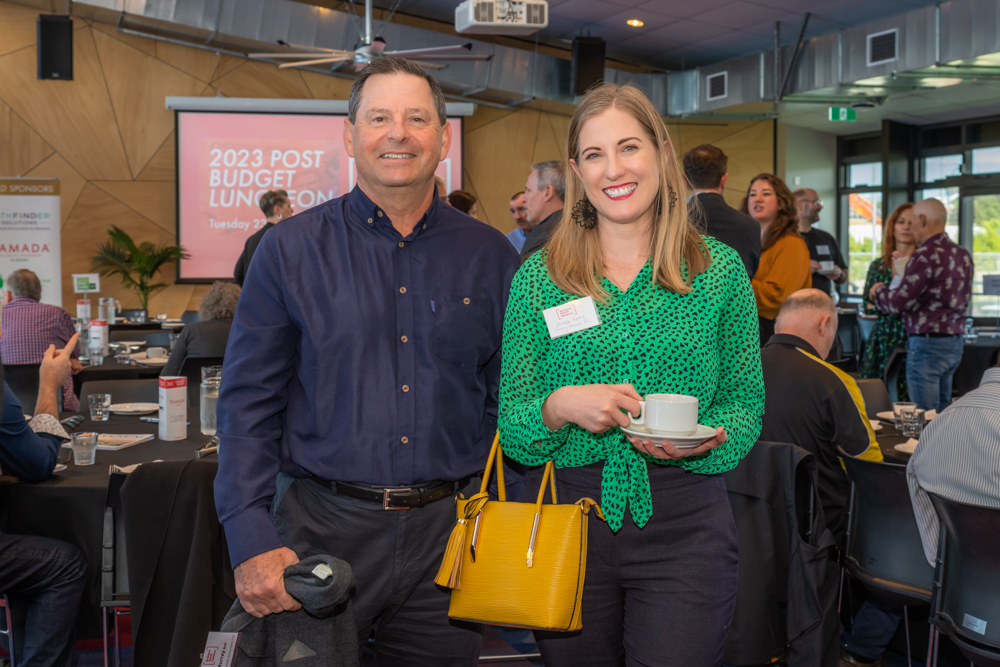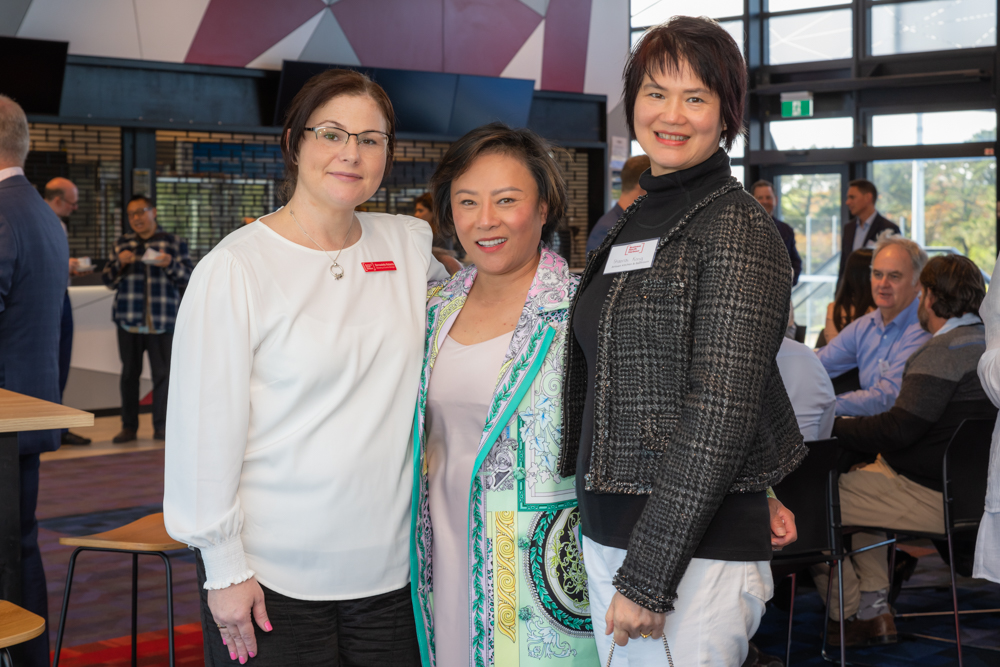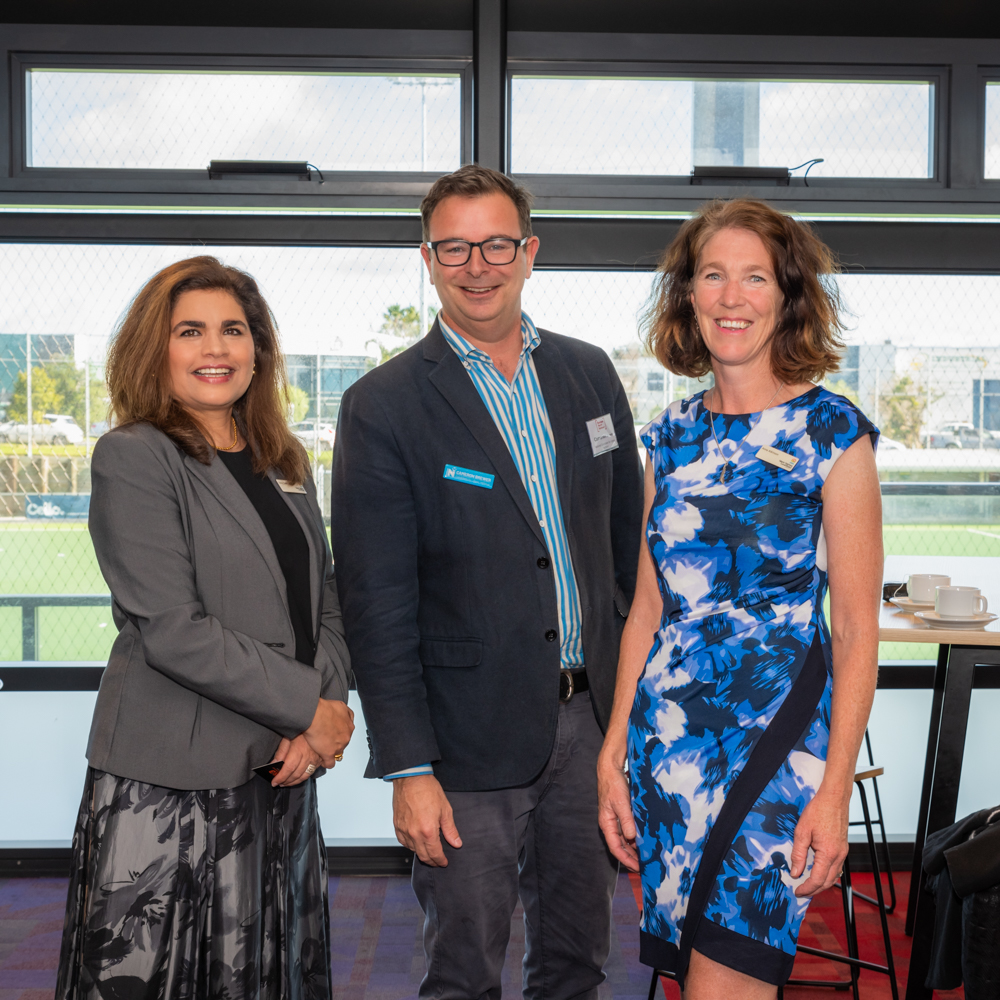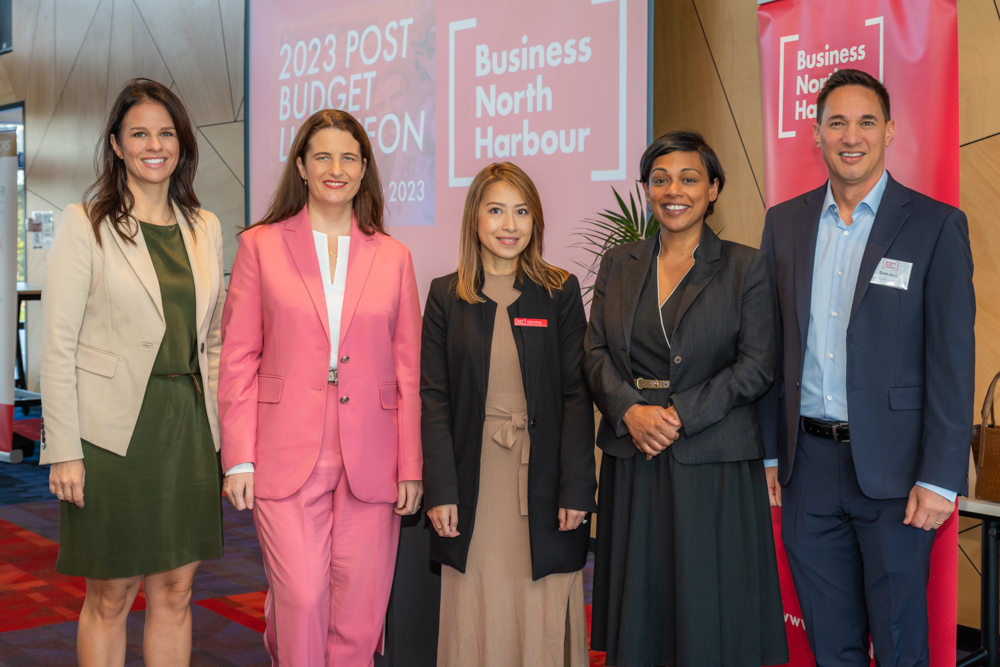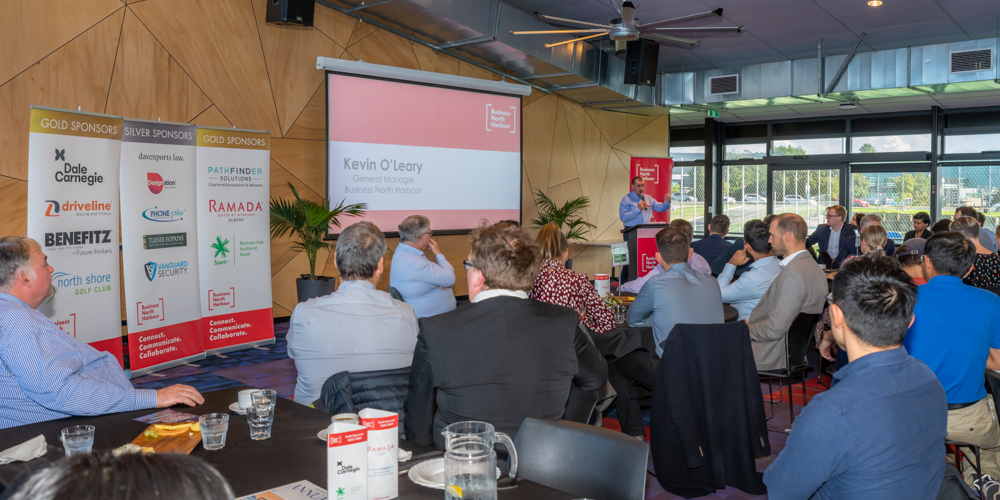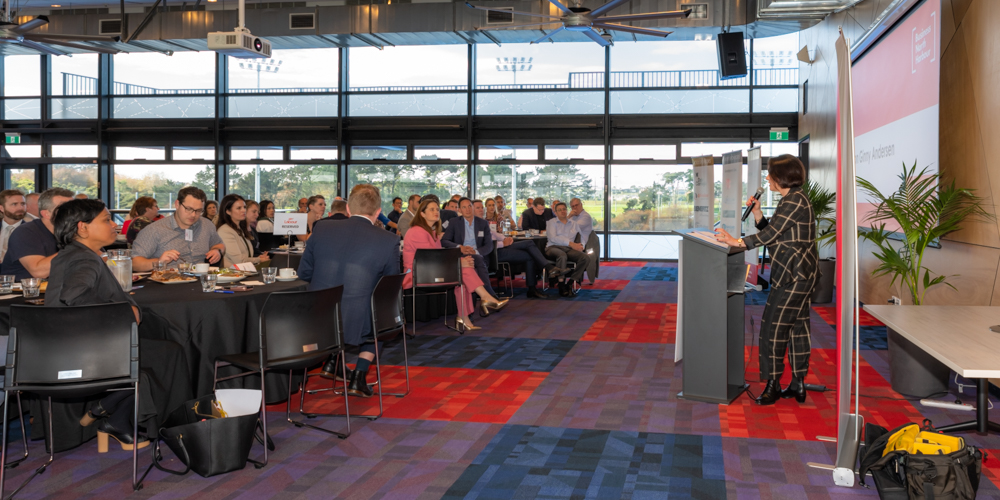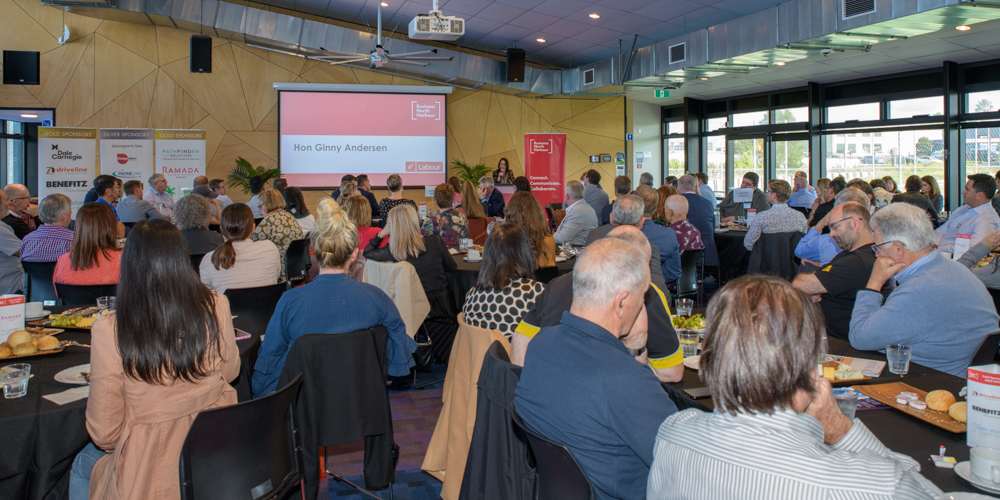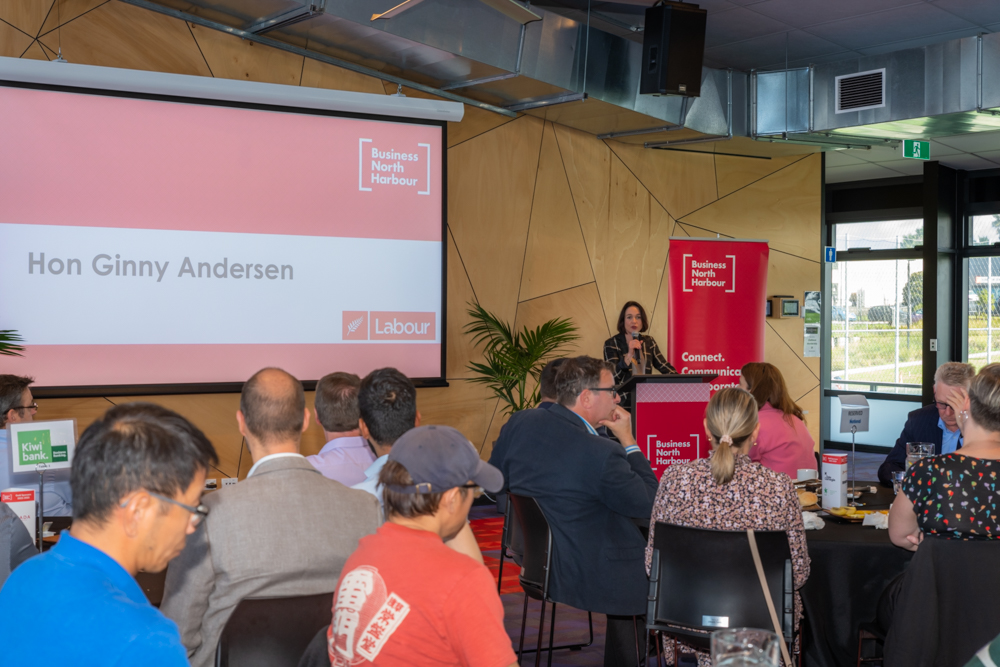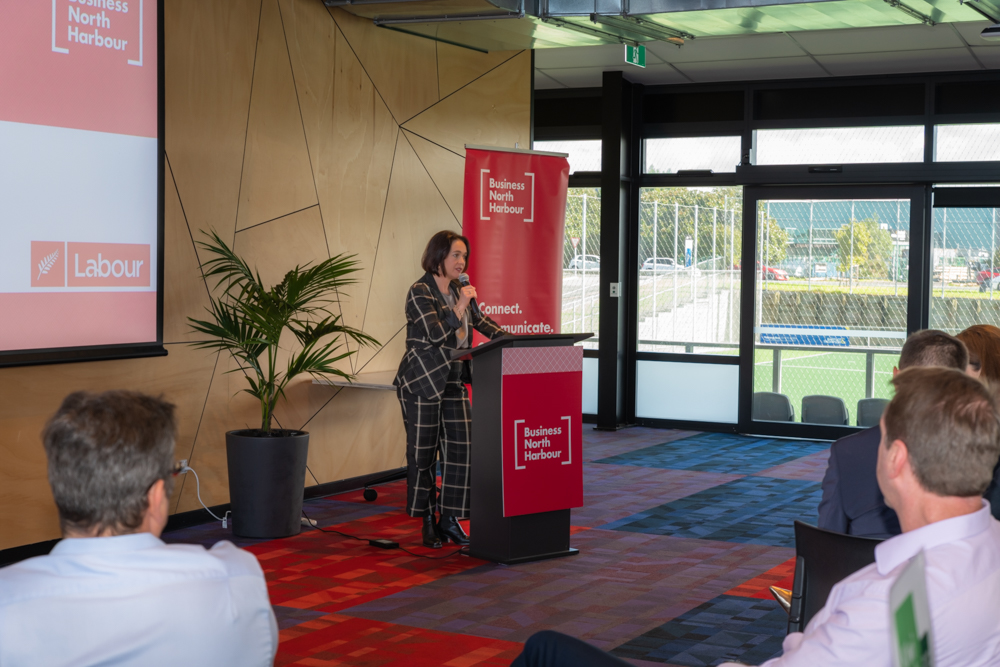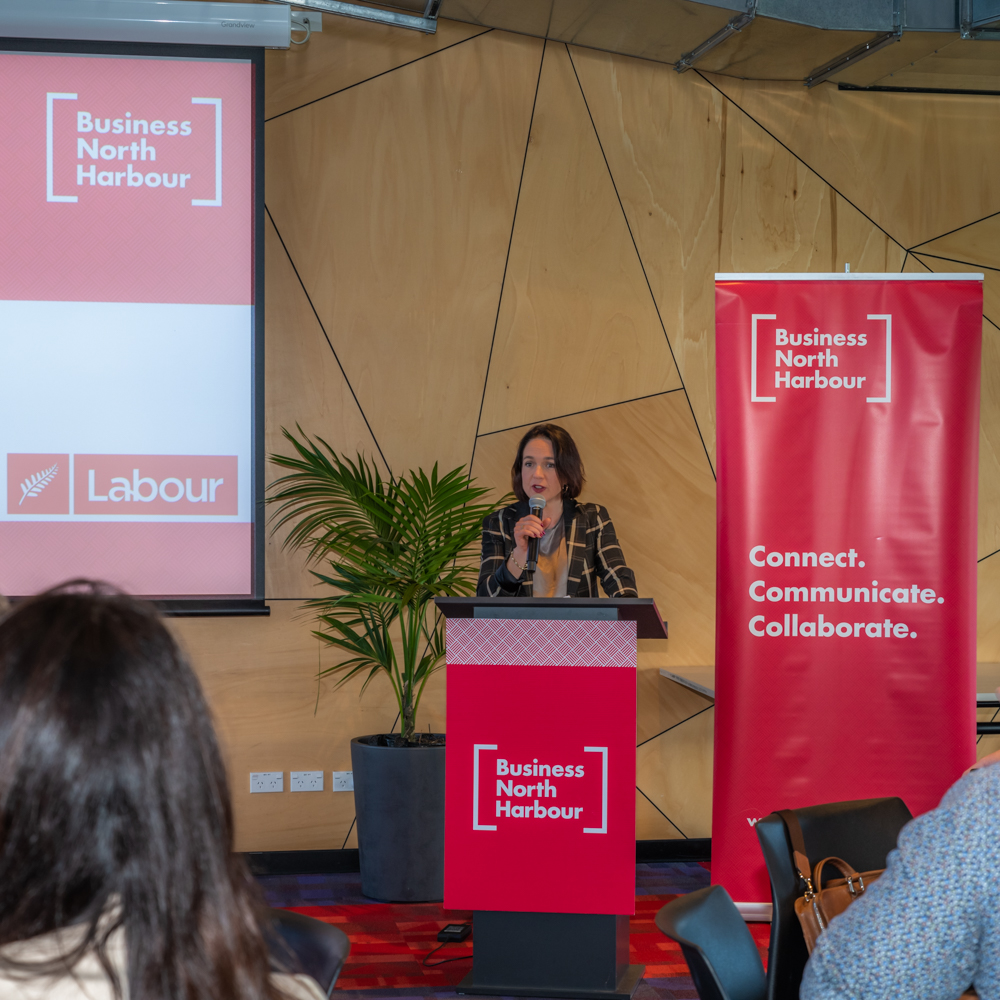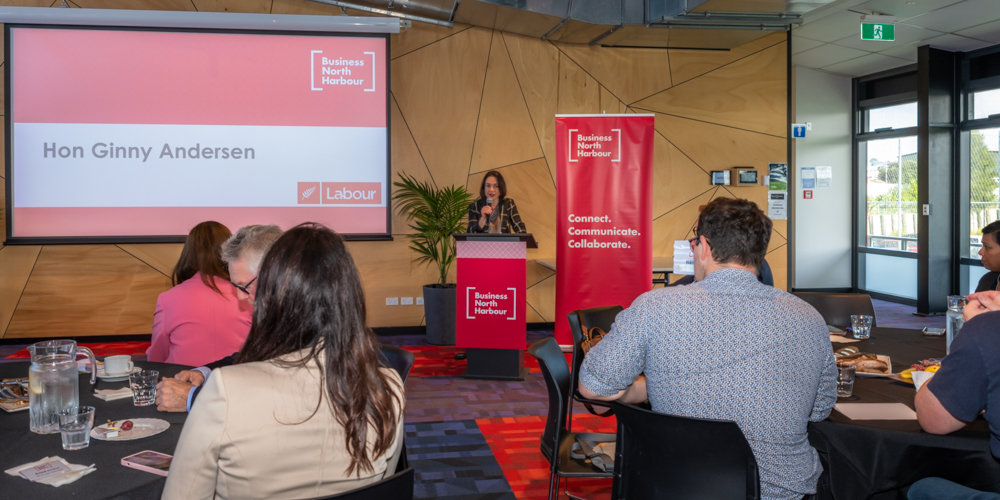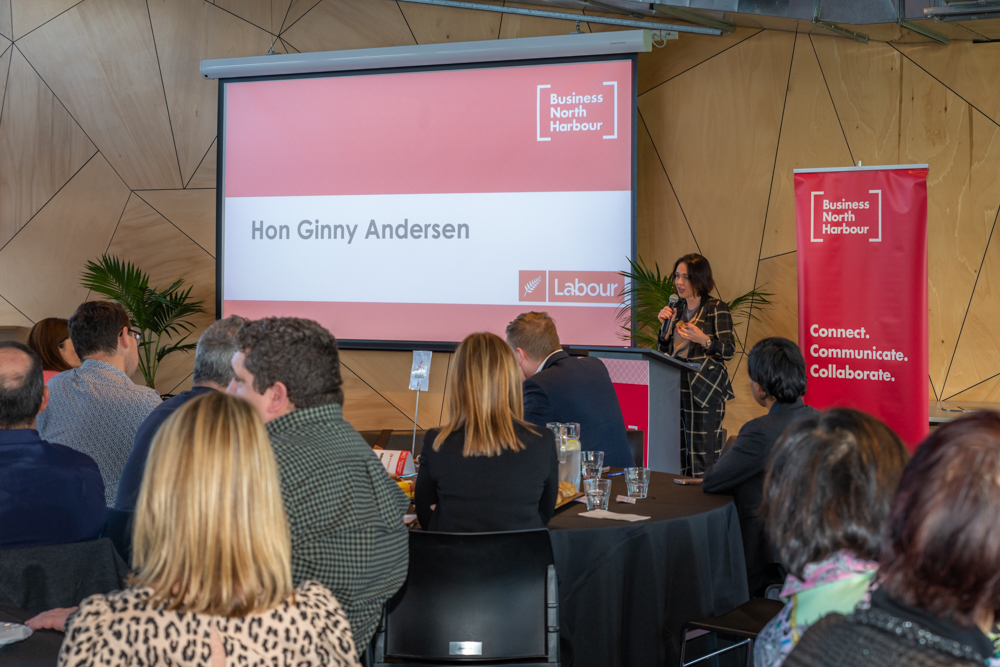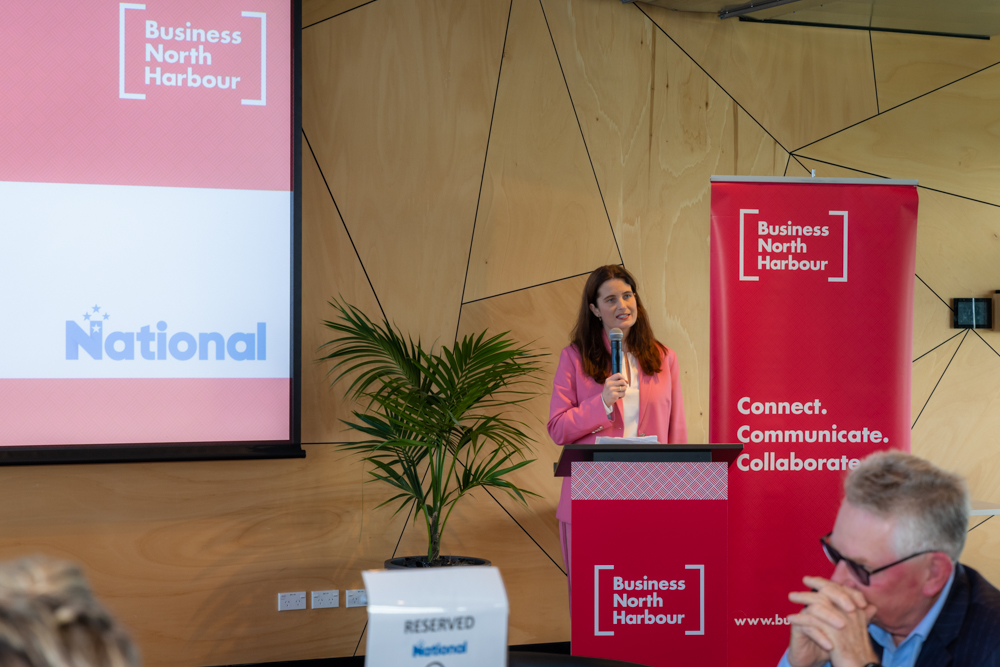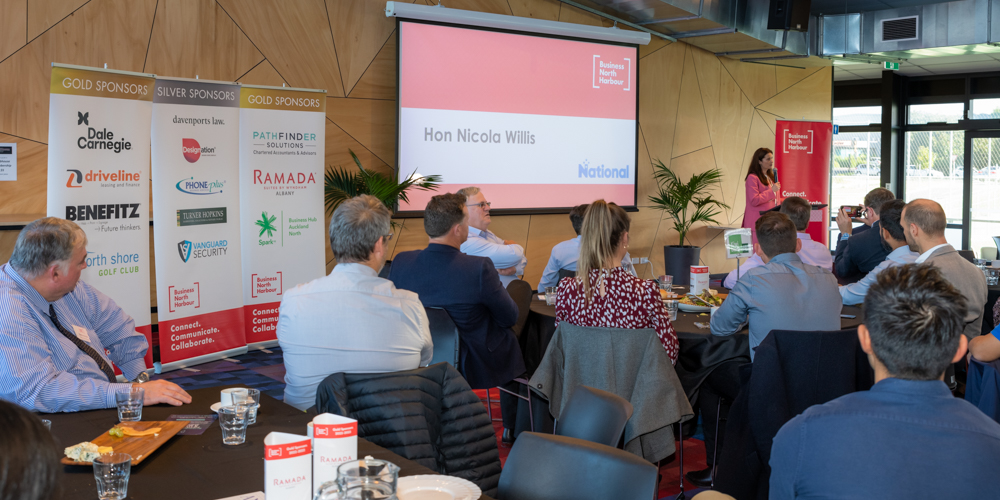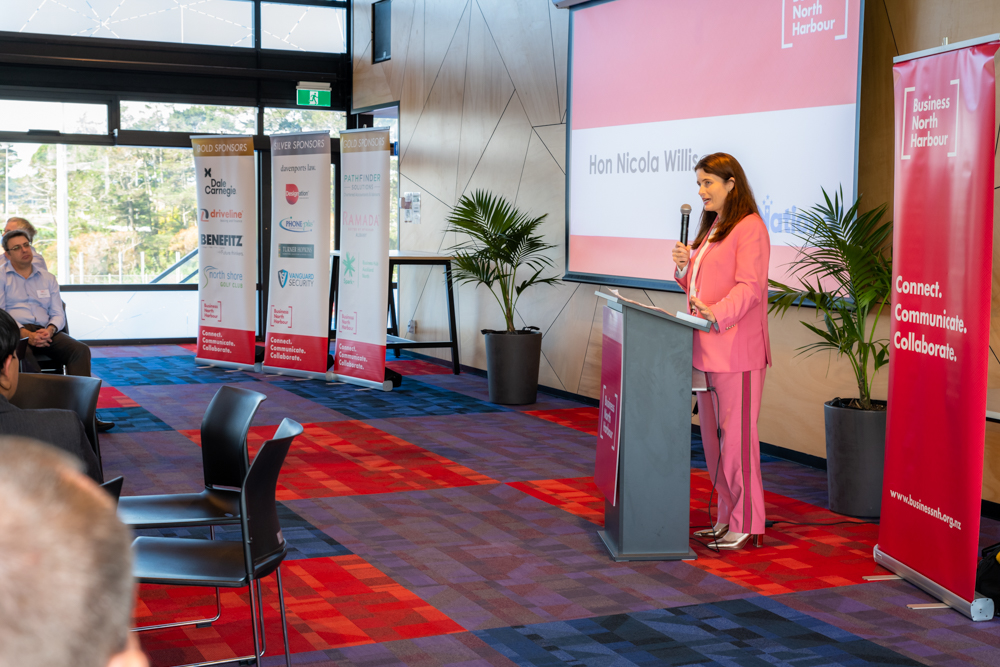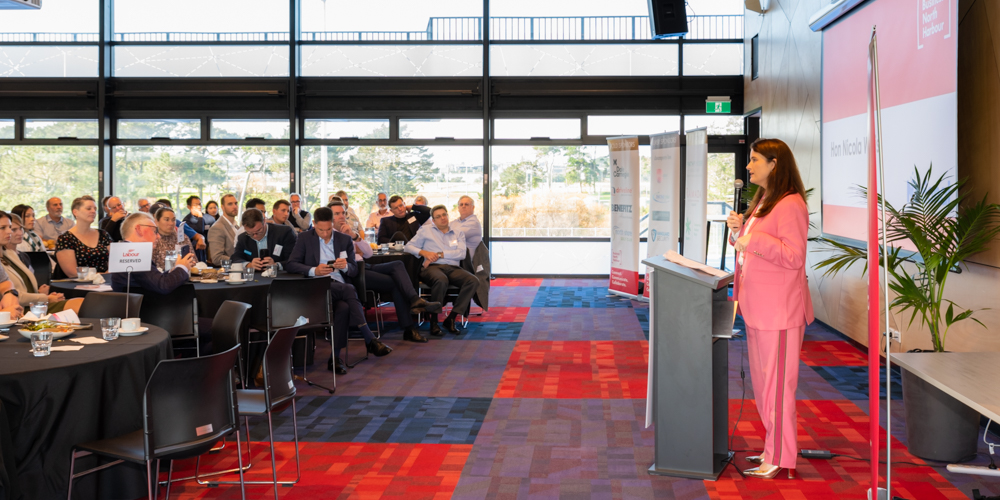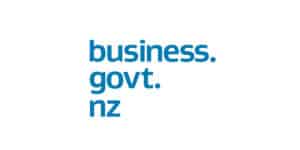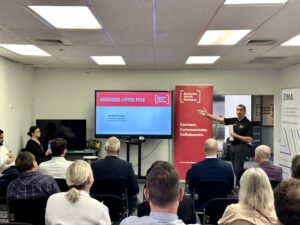23 May
Ginny Andersen MP
Minister for the Digital Economy & Communications, and Small Business
Nicola Willis MP
Deputy Leader of the National Party and Spokesperson for Finance and Social Investment
Please note: this is a summary of the event. Not all the talking points are covered.
With so many economic and social factors impacting business and home life, it was no surprise that representatives from all kinds of organisations filled the National Hockey Stadium’s main conference room.
BNH general manager, Kevin O’Leary, welcomed guests and began by thanking local MPs, Erica Stanford and Vanushi Walters for their ongoing support. This had been particularly appreciated in the wake of the January floods and Cyclone Gabrielle, as BNH advocated for financial and non-financial assistance for its members.
Introducing the event’s keynote speakers, Kevin acknowledged that many business owners are doing it tough. Indeed, some are scrambling to survive, dealing with ongoing staff shortages, supply chain issues, and cost of living challenges.
Were there elements of the Budget to help business mitigate the economic challenges? What could or should have been included? Kevin invited Ginny Andersen to speak first.
Reflecting that this was “one of the toughest budgets to work on”, Ms Andersen said that Grant Robertson had struck the right balance, aiming to put more in the pockets of Kiwi families without adding to inflation. She ran through the Budget’s key announcements:
- Twenty hours of ECE extended to include two-year-olds
- Removal of $5 prescription charges
- Free public transport for under-13s, and half-price public transport for under-25s
She also explained the importance of investing in New Zealand’s gaming development sector, which “lifts productivity” and contributed $7 billion to 2021’s GDP. Non-financial support for this sector, which is “crying out for creative people”, includes looking at clear education pathways from NCEA to employment, encompassing-school programmes, and internships.
Despite “severe and unexpected challenges”, MBIE’s survey of small businesses has found that SMEs feel “more resilient” – despite many respondents also saying they dislike the word “resilient”. Digital capability is fundamental to this. Ms Andersen spoke about the free resources and training available through Digital Boost. For the first time, New Zealand has more online than in-person sales. She therefore encouraged business owners to take advantage of this platform to expand their markets, whilst also making the most of Free Trade Agreements.
First Steps NZ is another online resource focused on supporting mental health, including free e-learning and access to funded therapy.
Ms Andersen previewed the Business Payment Practices Bill, describing it as a “registry of transparency” about how long larger companies, particularly, take to settle their suppliers’ invoices. This should go live later this year, giving SMEs more choice about who they deal with.
The Government is also investing $100 million, aiming to provide better access to finance for SMEs, and asking major banks to get on board with this.
A short Q+A followed covering such topics as sick leave for part-time employees – which Ms Andersen pledged to look into and potentially make pro rata – helping ethnic sectors of the community to flourish, and concerns about crime, especially ram raids. To this last point, Ms Andersen acknowledged that the majority of those involved in ram raids are young recidivist offenders. Stating that the evidence shows that traditional boot camps do not work, she cited programmes in South Auckland, resulting in 70-80 per cent of attendees not reoffending. She also affirmed that the government is committed to investing in frontline police services so that these are resourced adequately.
Further reading:
https://digitalboost.business.govt.nz/s/?language=en_NZ
https://firststeps.nz/
https://www.mfat.govt.nz/en/trade/free-trade-agreements/
https://legislation.govt.nz/bill/government/2022/0179/latest/LMS719846.html
Beginning her response, Nicola Willis said it was not her intention to “shower the room with doom and gloom”. However, she said there’s a general feeling that the country is going in the wrong direction. Referencing the high cost of living and sharp lift in interest rates, Ms Willis said there is a lack of business confidence and reported that the economy as a whole shrank in the last part of 2022. Commentators, she said, would have to be a “bit of a Pollyanna” to say that everything is going well.
Despite the Labour Government investing $28,000 more per household annually, there has been no visible positive effect.
Ms Willis said that the Government “needs to do its bit to take the pressure off” inflation and interest rates. She noted that National had wanted to see real evidence of a cut in spending on PR and consultants, etc, and income tax relief. The Opposition’s position is that the latter is a more direct and transparent way of helping Kiwis keep more money in their pockets.
Acknowledging the business sector’s fear of crime, a National Government would reverse the decision to reduce the prison population and implement “proper sentences” for youth offenders. Boot camps would be staffed by “the best” counsellors and teachers with military leadership. And there would be a commitment to get kids back into school.
What’s required is a plan to put the economy on a growth track and bring back confidence.
Ms Willis presented several priorities which National would immediately focus on, if elected, such as:
- Get the Reserve Bank back to its simple mandate of getting interest between 1-3 per cent.
- Reduce the pressure on business through well-intentioned but excessive red tape – e.g., the CCCFA and Fair Pay Agreement
- Use “more nimble” immigration settings so that businesses have improved access to workers. Plus, initiatives to get “our own people” off welfare and into work. If a job seeker does not, for example, attend job interviews, their benefits would be reduced.
- Get serious about education, particularly with the Doing The Basics Brilliantly plan and winding back polytech reform.
- Focus on real infrastructure – taking light rail off the table and looking at “spades in the ground” projects.
- Apply prudent and sensible tax reduction, including the reversal of “destructive landlord taxes”.
Ms Willis reconfirmed that she believes New Zealand has some of the best prospects in the world – we help to feed 40 million people, have renewable energy, are safe, and have an abundance of natural resources. In other words, all the raw ingredients are there. What’s needed is a government that knows how to make the most of them.
